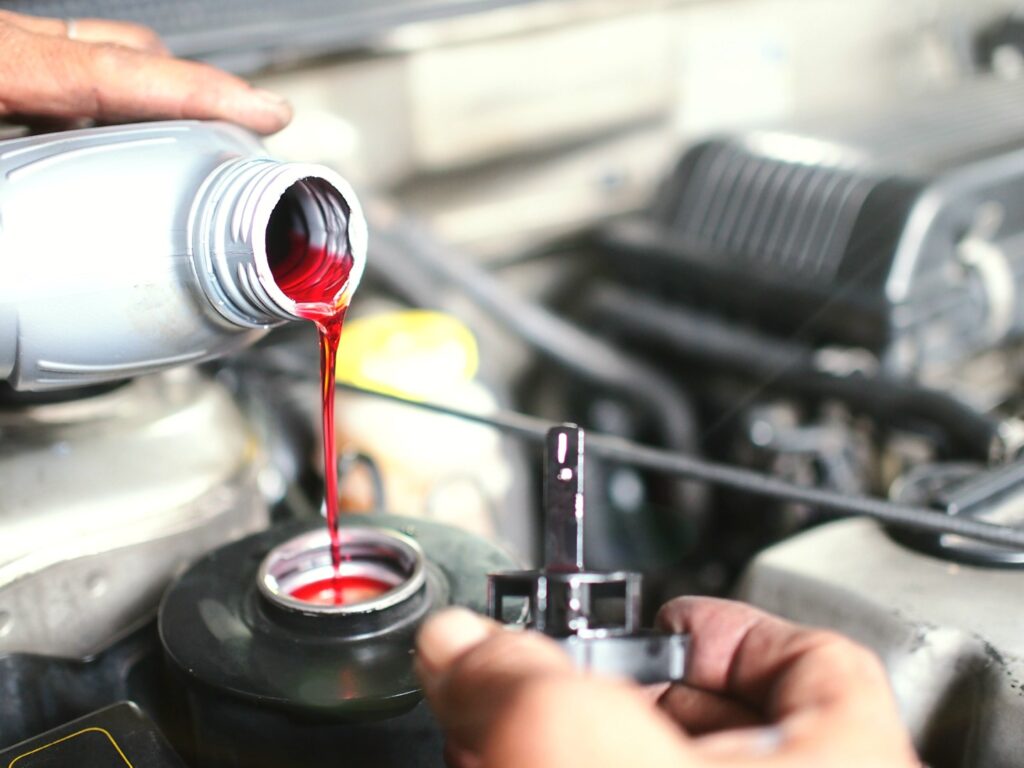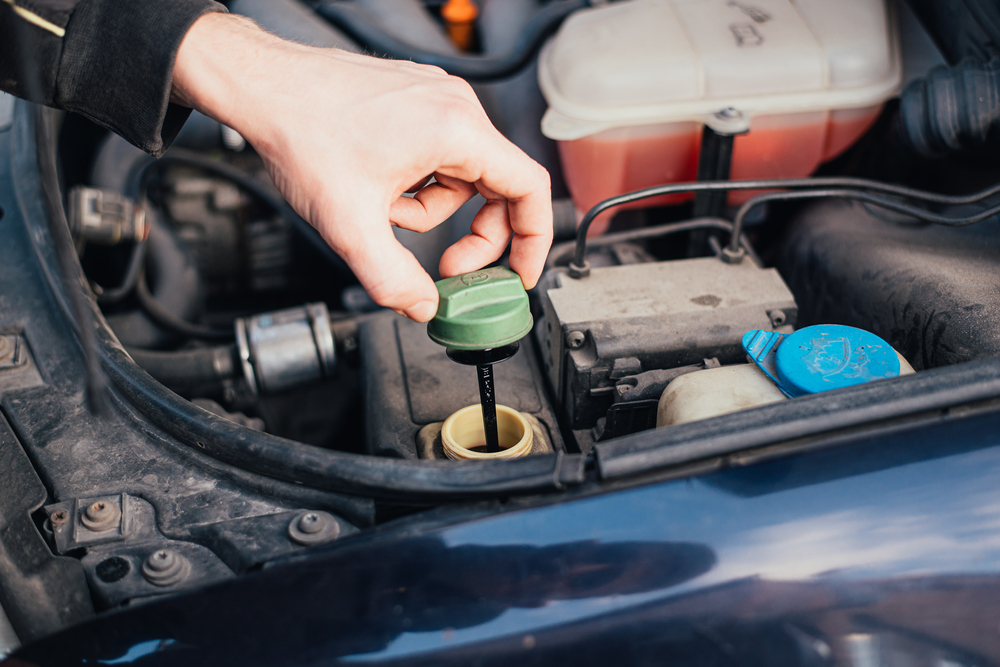Brake liquid assists with guaranteeing that your vehicle’s slowing mechanism works appropriately. Your brake lines contain this substance, which contributes to the generation of force when you press down on the brake pedal. The brake fluid, like nearly everything else in your vehicle, needs to be changed regularly to keep your brakes working properly and prevent more expensive repairs, because cars need brakes, brake fluid is one of the most important parts of your vehicle. Brake fluids can withstand high brake temperatures, protect against corrosion, and resist the moisture that can cause vapor lock brake failure.

Signs That Your Brake Fluid Needs to Be Changed
A complete brake failure is a clear indication that you need to change your brake fluid. There are, thankfully, a few safer indications that your vehicle requires new brake fluid. if any of these symptoms come to mind.
- Issues With Your Pedals
Your brake pedal may become more difficult to press as the brake fluid wears out or leaks. This may indicate that your brake lines require more fluid. If your brake pedal becomes unusually soft, you should change your brake fluid.
Neglecting either of these indicators could result in a brake failure or make braking extremely challenging.
- The Illuminated ABS Light
The anti-lock braking system (ABS) indicator on your automobiles indicates this. You will know something is wrong with your braking system when it lights up.
The most common cause of this light is that you need to top off or replace your brake fluid. Naturally, there are additional causes for your brake light to illuminate. Always have your brakes checked by a professional to make sure there isn’t a bigger problem underneath.
- Your Brake Pads Aren’t Working Well
How well your brake pads work will change as your brake fluid ages or gets dirty. Your brakes might make a grinding, squealing, or another strange sound. Your brakes taking a little longer to bring you to a complete stop is another telltale sign.
- A Burning Smell
Brakes that are overheating can give off a strong chemical smell that is similar to the smell of burned rubber or metal. If you smell this on your car, stop right away and let your brakes cool down before they harm your wheel or braking system.
How To Check Your Brake Fluid

Before you check your brake fluid, check your model’s owner’s manual to find out where the reservoir is. Most of the time, the reservoir is underneath your car’s hood on top of the master cylinder. Brake fluid typically has a color of light brown or clear, but it often gets darker over time and can become gunky if it is contaminated. The likelihood of needing to replace your fluid increases with dirtier fluid.
A fill line on your clear plastic reservoir should indicate where the fluid should be and whether it is getting too low. If the liquid drops below the line, a new one is probably needed. After you’ve checked your fluid, check to see that everything is back in its proper place. Open the reservoir as much as possible to prevent airborne debris from contaminating the fluid.
Determining the Right Type of Brake Fluid for Your Vehicle
When you need to replace your brake fluid, you should think about a few different options. Fluids containing silicon and glycol are the most common. While silicone-based brake fluids do not absorb water and are utilized in vehicles without an antilock brake system, glycol-based brake fluids are frequently utilized in vehicles with antilock brake systems. Although ABS technology is present in nearly all recent automobiles, it is still essential to confirm the appropriate fluid type.
Refer to your owner’s manual to determine which kind of brake fluid you should use the next time you need to replace it. You might also be able to use the reservoir cap to determine which brake fluid is best for your vehicle. If you’re uncertain, ask a specialist. Utilizing some unacceptable brake liquid can make your framework quit working.

